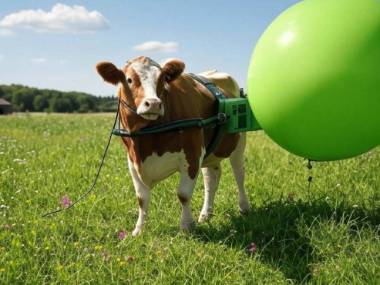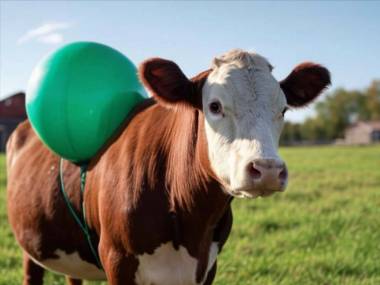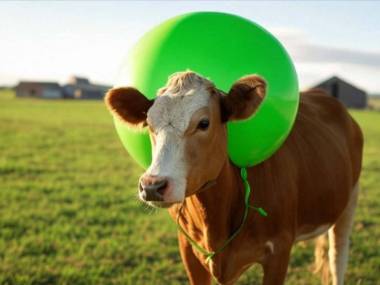Methane Balloons for rumex
Technical Specification for Methane Balloons for Rumex
Overview
This document outlines the technical specifications for methane balloons designed for use with Rumex plants. These balloons are intended to capture and store methane produced by the decomposition of Rumex biomass.
Materials
- Balloon Material: High-density polyethylene (HDPE)
- Thickness: 0.5 mm
- UV Resistance: UV stabilizers added to prevent degradation
- Color: Black, to maximize heat absorption
Dimensions
- Diameter: 2 meters
- Height: 3 meters
- Volume: Approximately 9.4 cubic meters
Design Features
- Inlet Valve: Located at the bottom for easy connection to Rumex biomass digester
- Outlet Valve: Located at the top for methane extraction
- Pressure Relief Valve: Set to release at 1.5 psi to prevent over-inflation
- Reinforced Seams: Double-stitched for durability
- Grounding Strap: To prevent static electricity buildup
Performance Specifications
- Methane Storage Capacity: Up to 5 cubic meters of methane at standard temperature and pressure
- Operating Temperature Range: -20°C to 60°C
- Expected Lifespan: 5 years under normal operating conditions
- Methane Purity: Designed to maintain methane purity above 90%
Installation and Maintenance
- Installation: Should be installed on a flat, stable surface near the Rumex biomass digester
- Regular Inspections: Monthly visual inspections for signs of wear or damage
- Cleaning: Annual cleaning of valves and surface to prevent buildup
- Replacement: Replace balloon if any significant damage or leaks are detected
Safety Considerations
- Ventilation: Ensure proper ventilation around the installation site to prevent methane accumulation
- Fire Safety: Keep away from open flames and ignition sources
- Electrical Safety: Use only intrinsically safe equipment near the balloons
- Emergency Procedures: Have a plan in place for rapid deflation and evacuation in case of a balloon rupture
Environmental Impact
- Biodegradability: HDPE is not biodegradable, but can be recycled at the end of its lifespan
- Methane Capture: Helps reduce greenhouse gas emissions by capturing methane that would otherwise be released into the atmosphere
- End-of-Life Disposal: Balloons should be properly recycled or disposed of according to local regulations


